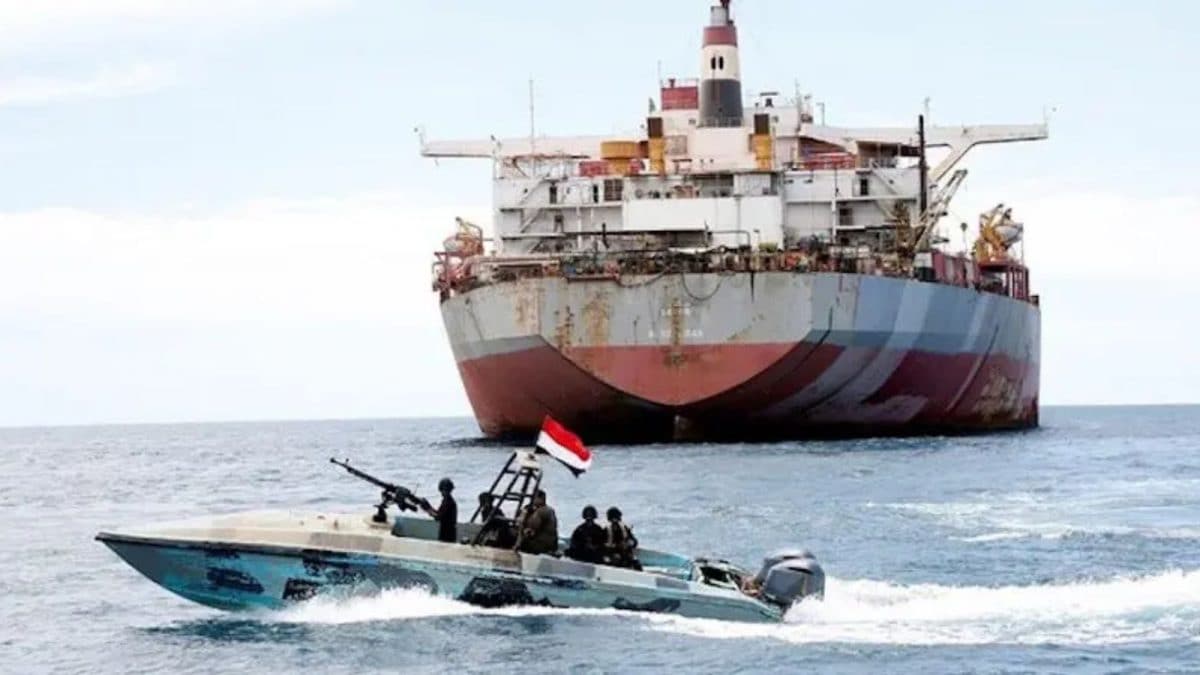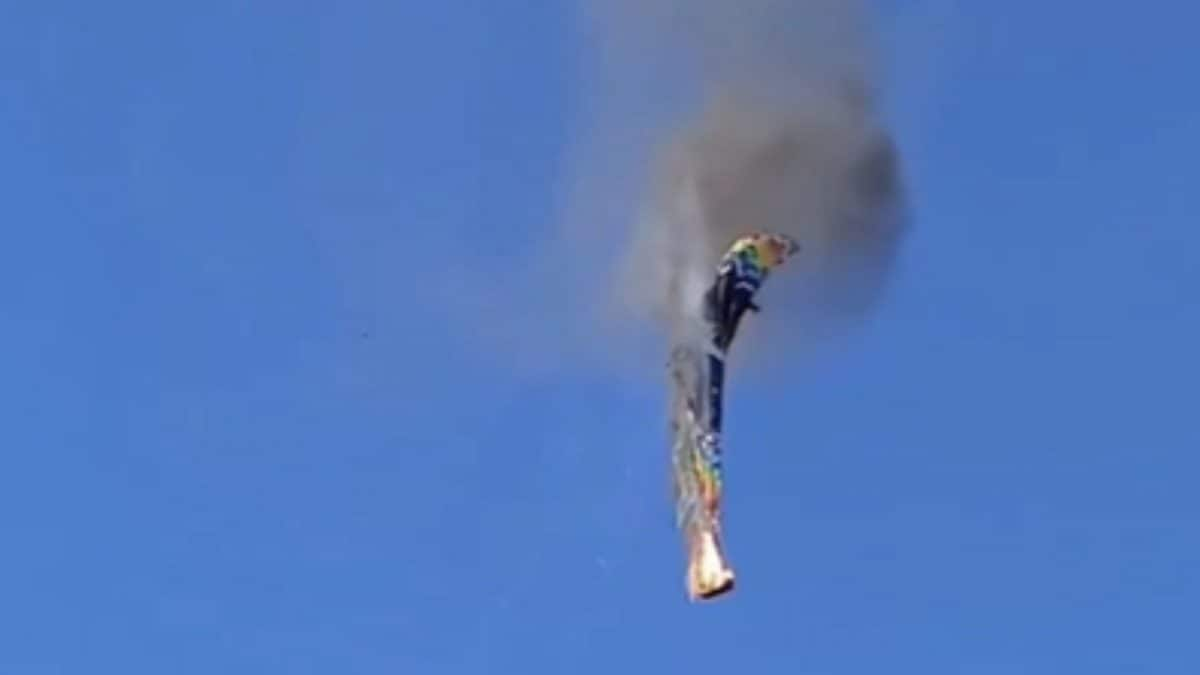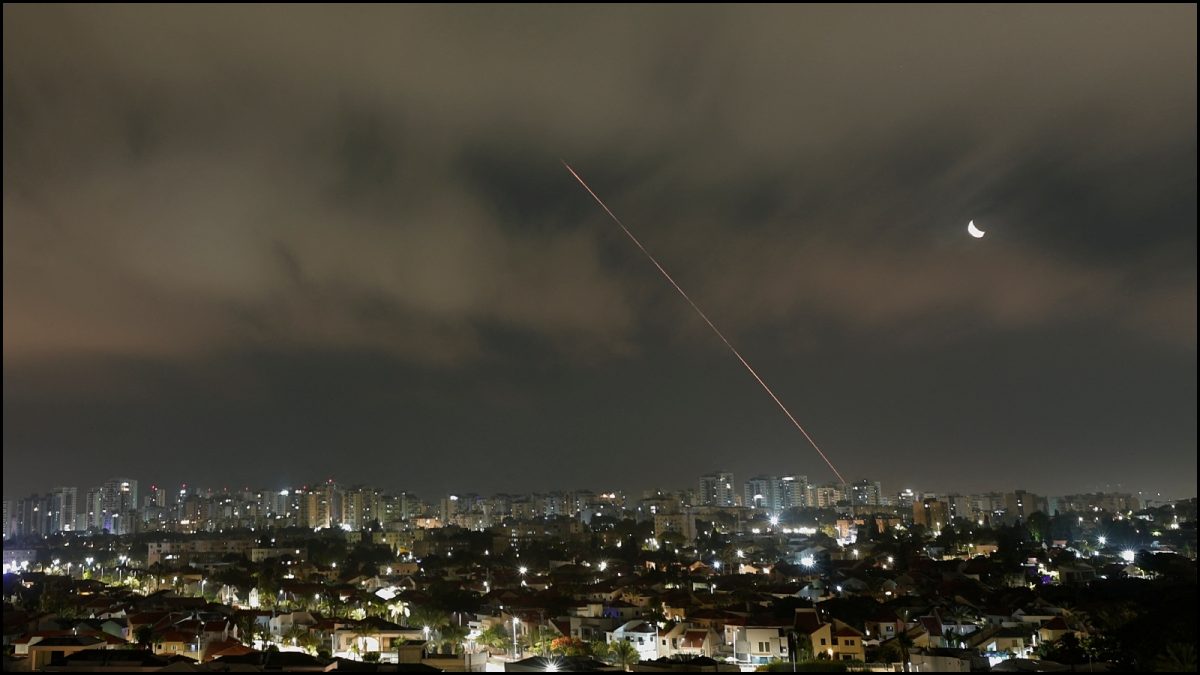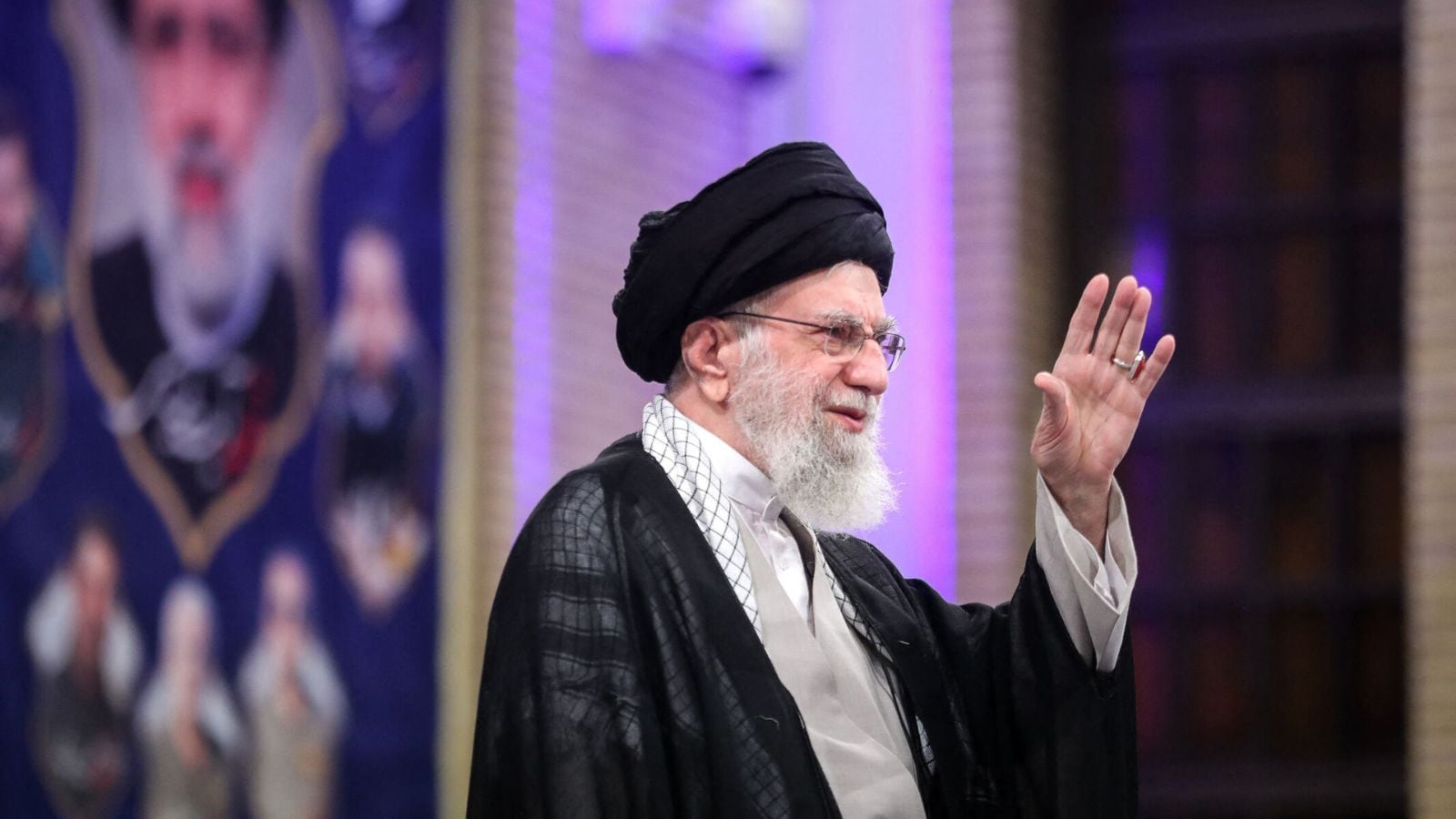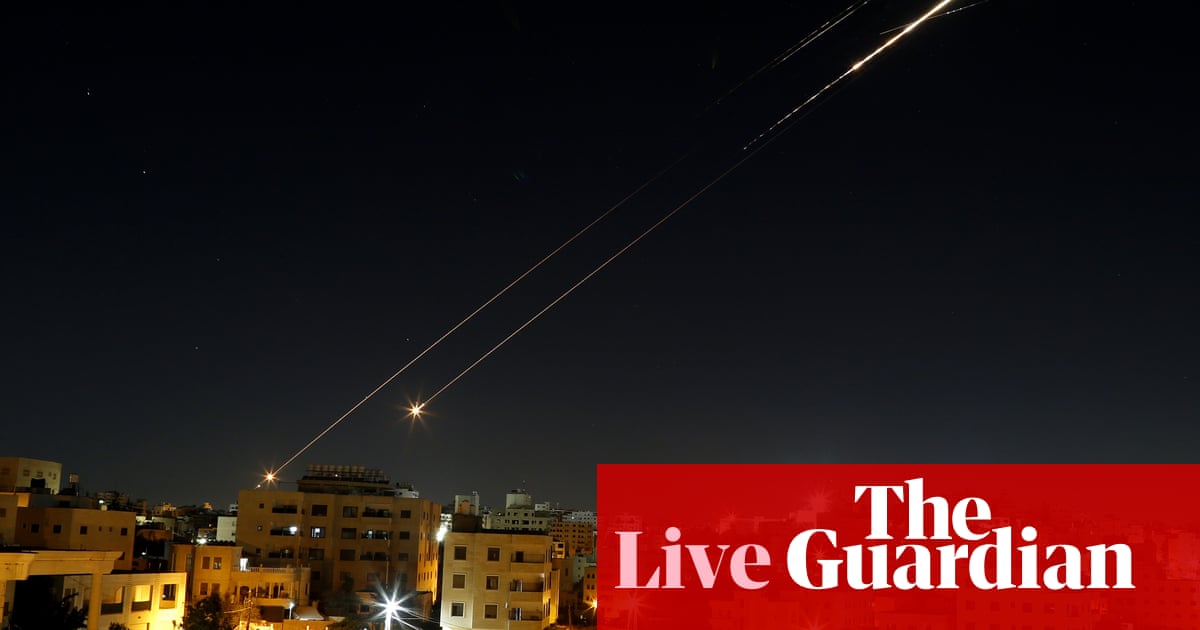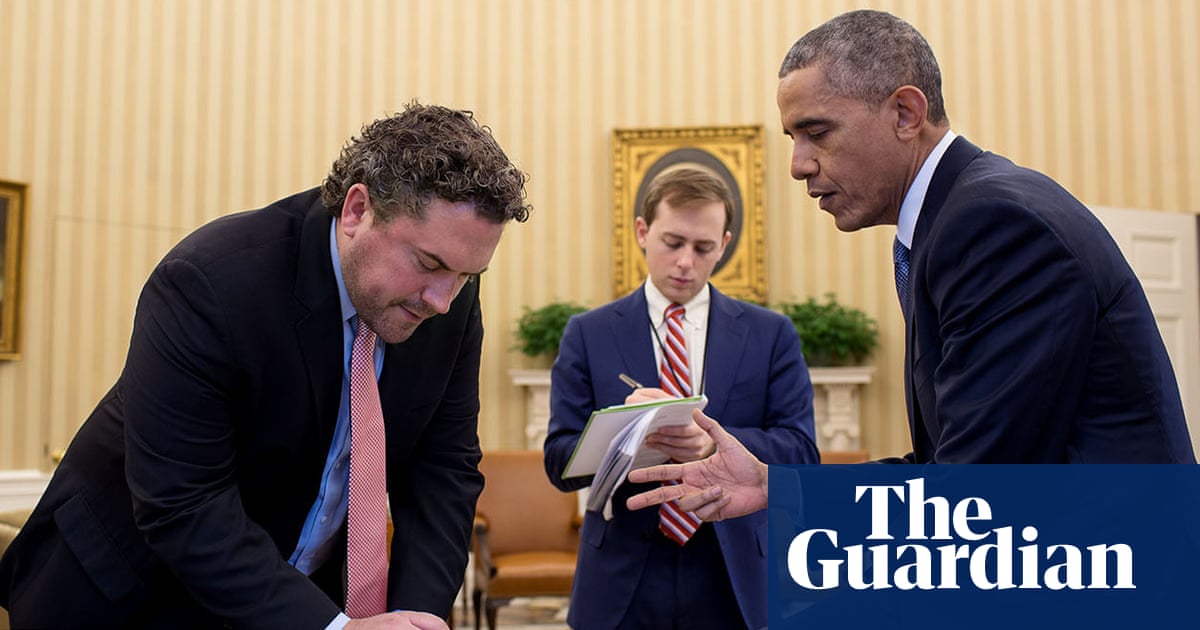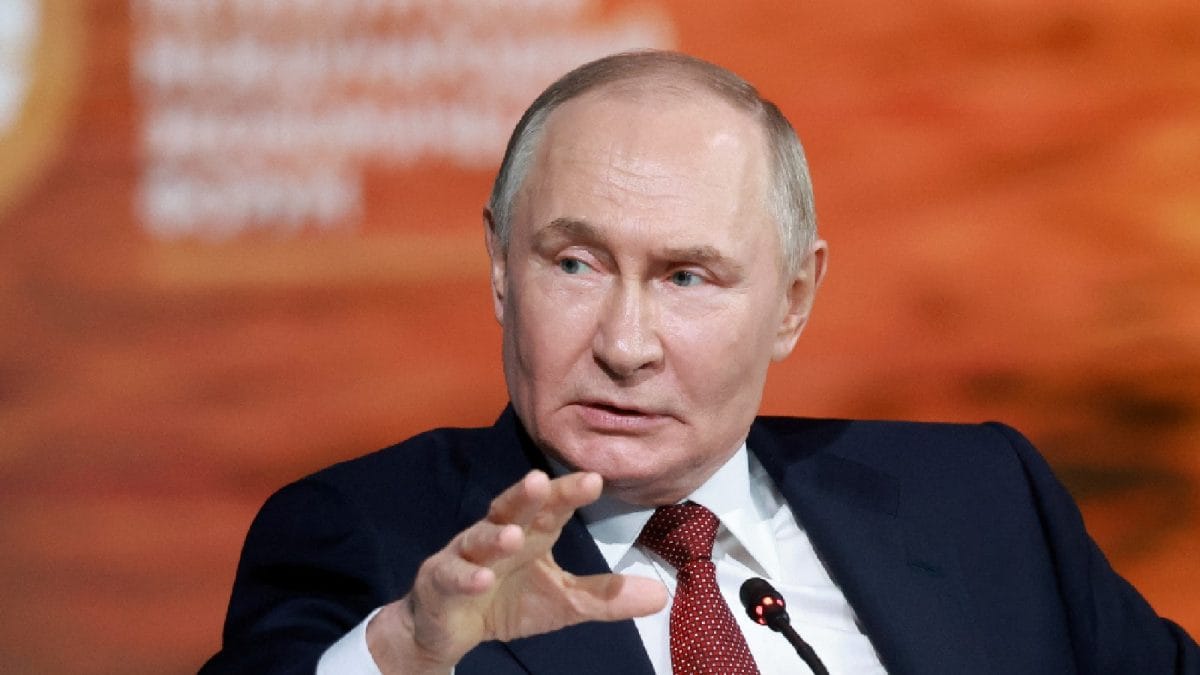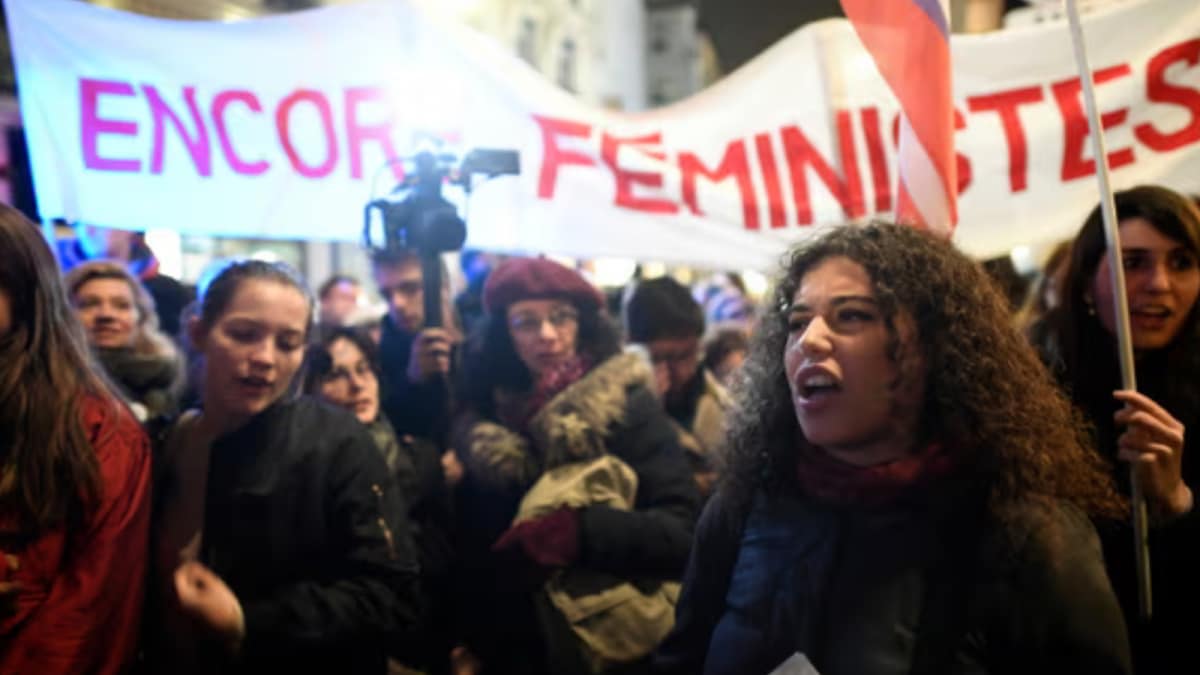Israel’s military has said it killed two top Iranian military officials in overnight strikes as Iran warned it would be “very dangerous for everyone” if the US intervened in the conflict.
An Israeli military official said on Saturday that Saeed Izadi, the head of the Palestine Corps of al-Quds, the foreign branch of the Islamic Revolutionary Guard Corp, had been killed in a strike on a flat in the city of Qom, central Iran.
The Israeli military said Izadi had played a key role in the financing and arming of Hamas before its attack on Israel on 7 October 2023, which killed 1,200 people, mostly civilians.
The official said Behnam Shahriyari, another senior official in al-Quds force responsible for helping finance the Lebanese militia Hezbollah, had also been killed in a strike.
After talks between the Iranian foreign minister, Abbas Araghchi, and European counterparts in Geneva ended on Friday evening with no breakthrough, Iran launched a salvo of missiles at Israel in the early hours of Saturday morning. A building in central Israel caught fire after being hit by the shrapnel of an intercepted Iranian missile. Later on Saturday a drone strike hit a residential building in north Israel, damaging the building. No casualties were reported from the missile barrage or the drone strike.
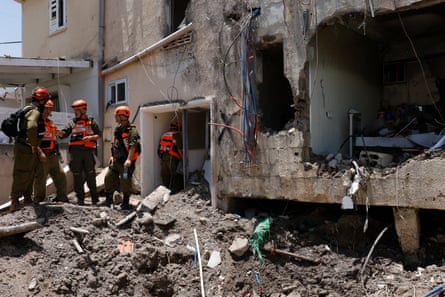
Speaking in Istanbul on Saturday, Araghchi said it would be “very, very dangerous for everyone” if the US intervened militarily in Israel’s war with Iran. Donald Trump has said that he will decide within two weeks whether or not the US will join Israel in its bombing of Iran, saying he is waiting to give diplomacy a chance.
The war began on 13 June after Israel launched a wave of pre-dawn strikes on Iran in what it said was an operation aimed at preventing the country from obtaining a nuclear weapon. Iran quickly responded with missile and drone attacks, kicking off an escalating cycle of tit-for-tat bombings that has now entered its ninth day.
In Iran, at least 430 people had been killed and 3,500 wounded by Israeli strikes since fighting began, state media said. At least 25 people had been killed and hundreds injured by Iranian strikes in Israel.
Araghchi’s meeting in Geneva had been aimed at reviving nuclear negotiations between the US and Iran in an attempt to reach a ceasefire between Israel and Iran. The foreign ministers of the UK, Germany and France, along with the EU’s high representative, set out a proposal which included Iran moving to zero uranium enrichment, restrictions on its missile programme and ending Tehran’s financing of proxy groups.
The talks appeared to have made little progress, as Iran said it would not negotiate with the US unless Israel stopped its bombings – something that neither Israel nor its key backer seemed likely to consider.
“It is obvious that I can’t go to negotiations with the US when our people are under bombardments under the support of the US,” Araghchi told reporters in Istanbul where he was attending a meeting of the Organisation of Islamic Cooperation.
On Friday, Trump said: “Israel is doing well, in terms of war, and Iran … is doing less well. It’s a little bit hard to get somebody to stop.” He added that the US was “ready, willing and able” to negotiate and that it had been speaking to Iran.
European politicians have urged the use of diplomacy to reach a ceasefire, stressing that an expanded Israeli-US-Iran war could spiral out of control.
Vladimir Putin has said he is willing to mediate between Israel and Iran, the latter of which is a close ally of the Kremlin. In an interview with Sky News Arabia on Saturday, the Russian president said Moscow was opposed to the proliferation of nuclear weapons but there was no evidence that Iran aimed to build any.
“We believe Iran has the right to use nuclear energy peacefully, and we are ready to help,” Putin said, echoing Iran’s insistence that its nuclear programme was meant for civilian purposes.
In a 31 May report, the Atomic Energy Agency (IAEA) said Iran had produced enriched uranium to a level of 60%, which the nuclear watchdog said was of “serious concern”. US intelligence said Iran was up to three years away from producing a nuclear weapon.
Israel deployed 50 aircraft over Iran overnight, hitting the Isfahan nuclear site for the second time.
Israel’s foreign minister, Gideon Saar, said in an interview on Saturday that its attacks had delayed Iran from obtaining a nuclear bomb for at least “two or three years”, and that the Israeli military campaign would continue.
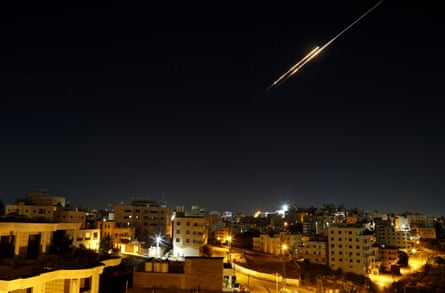
The IAEA director general, Rafael Grossi, has warned against attacks on nuclear sites in Iran, which he said have caused a “sharp degradation in nuclear safety and security”, though no radiological leaks had occurred yet. He warned specifically against an attack on the Bushehr nuclear power plant on the south-west coast which he said could result in a “very high release of radioactivity to the environment”.
Israel’s strikes have also been aimed at Iran’s ballistic missile programme. An Israeli military official estimated it had destroyed or damaged more than 50% of Iran’s missile launchers, which they said would limit the ability to use remaining ballistic missile stock.
Israeli attacks have displaced tens of thousands of city residents, particularly those in Tehran. Iran’s foreign ministry spokesperson, Esmaeil Baghaei, said on Friday that three aid workers had been killed, and six ambulances and four healthcare centres hit by Israel.
“The intentional attack on a Red Crescent ambulance in Tehran is a clear example of a war crime and a flagrant violation of international humanitarian law,” Baghaei said.
Israel has said it is only targeting Iranian government sites, which have included the internal security forces headquarters in Tehran. An Iranian missile hit Soroka hospital in southern Israel on Wednesday, injuring at least 76 and damaging the facility.

 4 hours ago
4 hours ago

